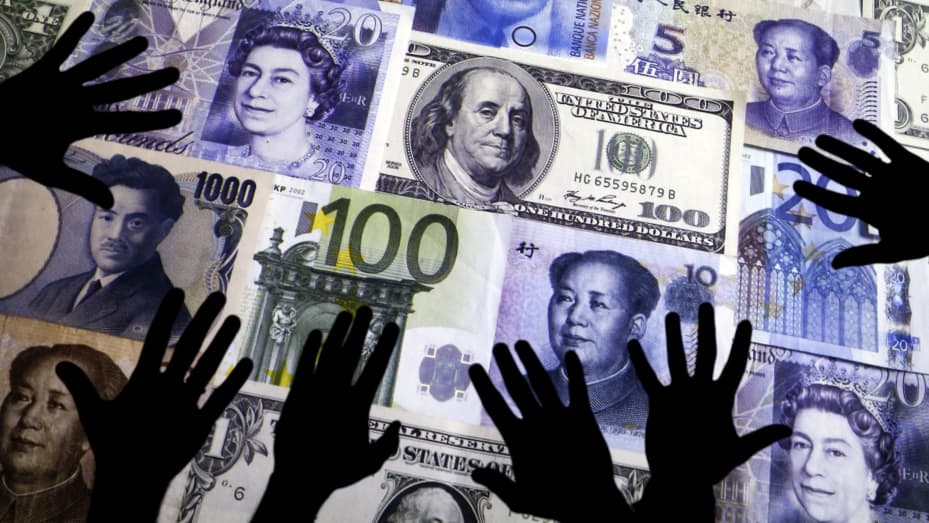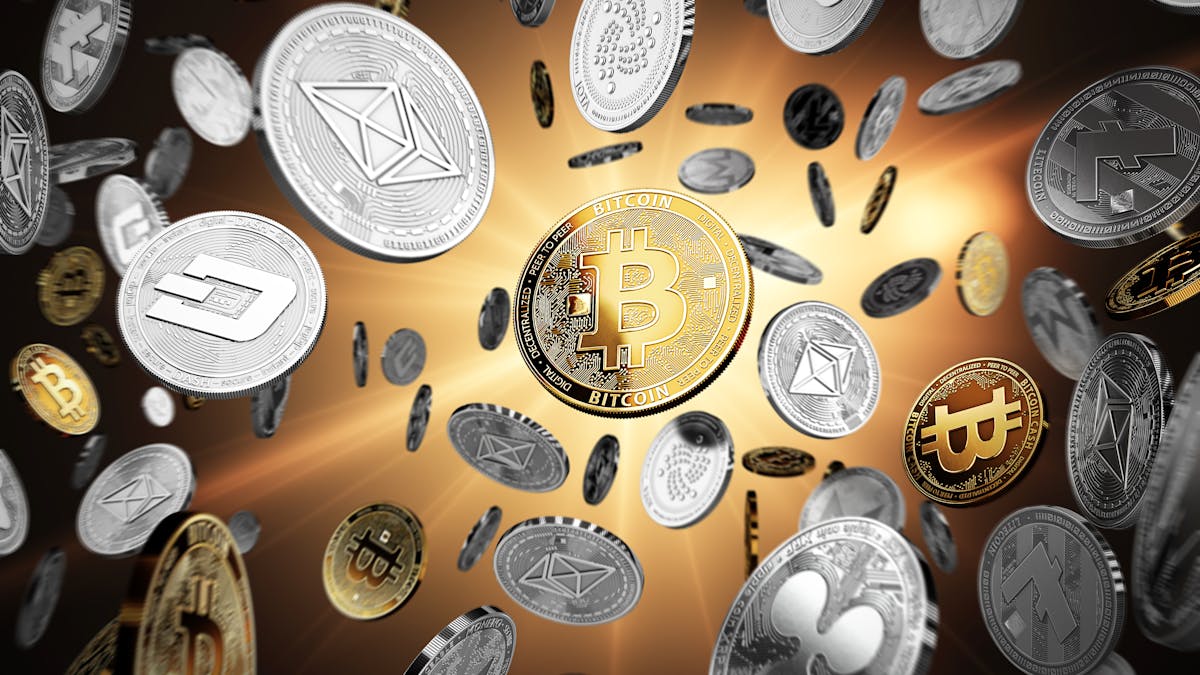The United States has been an economic superpower for decades and its financial hegemony has been dominant globally. Despite many forecasts that the dollar hegemony has reached its peak, the greenback is still dominant in the global trade arena, financial services, and the reserve portfolios of central bankers worldwide.
However, can elevated inflation levels, geopolitical tensions and the sanctions pushed on Russia by the United States and its allies dent its global dominance? The impact of the war in Ukraine, the Coronavirus pandemic, and the sanctions on Russia, coupled with the ‘steep hike’ of Federal Reserve interest rates is bound to restructure the international monetary system and shake the state of the American financial hegemony.
Although the US dollar is still at the top, several undercurrents show a gradual erosion of its global dominance and the slow shift towards a multi-currency market. To slow down the pace of this fragmentation, the US needs to re-evaluate the use of different financial sanctions as a foreign policy tool and provide emerging economies with a bigger voice in international monetary relations.
Related: Roundtable Interview-What is the Effect of The Russia-Ukraine War on Cryptocurrency Prices?
Calls To Abandon The US Dollar Are Increasing
There are growing calls to move away from the US dollar for global trade. Many countries, including Brazil and Southeast Asian countries, are calling for trade to be conducted in other currencies away from the US dollar.
The US dollar has been dominant in global trade for decades – not only because the United States is the largest economy globally, but also because oil is priced in the greenback. Oil is an important commodity that is needed by all economies regardless of their size. Most of the other commodities in the global trading arena are priced in US dollars.
However, since the Federal Reserve started to hike interest rates aggressively to combat domestic inflation, central banks worldwide have raised interest rates to minimize capital outflows and avoid a steep depreciation of their local currencies.
Cedric Chehab from Fitch Solutions stated:
“By diversifying their holdings reserves into a more multi-currency sort of portfolio, perhaps they can reduce that pressure on their external sectors.”
For now, the US dollar is still dominant in global forex reserves although its share in central banks’ foreign exchange reserves has plummeted from over 70% in 1999, according to IMF data.
The US dollar accounted for an incredible 58.36% of global foreign exchange reserves in Q4, 2022, as highlighted by the data from the IMF’s Currency Composition of Foreign Exchange Reserves (COFER). Comparatively, the Euro came in at a distant second, accounting for around 20.5% of global forex reserves while the Chinese Yuan accounted for a mere 2.7% within that period.
China is among the most active players in this push considering its dominant position in global trade currently and is the second biggest economy globally. Based on market data, mainland China was the biggest trading partner to 61 nations when considering both exports and imports. On the other hand, the US was the biggest trading partner to 30 nations.
As China’s economy grows, it will exert more influence on global financial institutions and trade. The Asian economy has been constantly reducing its possession of US Treasury securities. China had almost $849 billion of US Treasuries as of February 2023. That amount is at a 12-year low, based on historic data.
Global Dynamics Are Changing
China is not alone in its push to shift from the US dollar. Brazilian President Lula also allegedly called for reduced reliance on the dollar for global trade. Trade between China and Brazil was worth $150 billion in 2022, a 10% increase from a year ago, as reported by S&P Global Market Intelligence.
Malaysia’s Prime Minister Anwar Ibrahim suggested the setting up of an “Asian Monetary Fund” to minimize the current reliance on the US dollar. In recent interviews, Malaysia’s trade minister acknowledged his country’s worries about Asia’s heavy dependency on the US dollar.
Also at the ASEAN finance ministers and central banks meeting in Indonesia, policymakers debated on ways to cut their reliance on the Japanese Yen, the US dollar, and the Euro, and shift to local currencies when trading amongst themselves. In that context, it was reported that India and Malaysia had started settling their trade in the Indian rupee.
The changing economic dynamics are underpinning the de-dollarization trend and that can benefit different local economies in several ways. Trading in local currencies lets importers and exporters balance risks and they get more options to invest with increased certainty about sales and revenue.
Related: How Will De-Dollarization Affect The Crypto Market?
Shifting from the dollar will also help nations to move up the value chain, according to Mark Tinker from ToscaFund Hong Kong. Tinker explained:
“It isn’t about selling cheap stuff to Walmart, keeping down the prices for American consumers to earn dollars to buy its energy. This is now about actually a completely bilateral trade bloc.”
In the meantime, the expansion of non-US economic blocs also encourages the economies to push for increased use of their local currencies. Based on IMF estimates, Asia could contribute over 70% to global growth in 2023.
Tinker added:
“U.S. growth might slow, but U.S. growth isn’t what it’s all about anymore. A whole non-U.S. block’s growing. I think there is going to be a re-internationalization of flows.”
Geopolitical Issues
Geopolitical issues have intensified the trend to shift from the US dollar. Political risks are introducing lots of variability and uncertainty around how much of a have that the US dollar is. What might have intensified calls for de-dollarization was the decision by the United States to freeze Russia’s foreign currency reserves as punishment after it invaded Ukraine in February 2022.
The Yuan seems to have replaced the US dollar as the most traded currency within Russia, as highlighted by Bloomberg.
As of April 2023, the US and its allies had frozen over $300 billion of Russia’s foreign currency reserves and issued many sanctions on Moscow and its oligarchs. These economic backlashes pushed Russia into switching trade to other currencies and boosted its gold reserves.
Saudi Arabia has also shown its interest to trade in other currencies besides the greenback. Although it is not quite possible to break away from the dollar-denominated oil trade in the near term, other countries are just recognizing a new player in town and might trade with them on a bilateral basis using the Yuan.
The Crypto Factor
In the last decade, the crypto sector has grown from virtually nothing to become a trillion-dollar industry. Many investors are moving into the space to diversify their portfolios. As the nascent sector matures, analysts and experts are convinced that it will eat into the global financial space.
Some countries like El Salvador recognized Bitcoin as a legal tender to resolve the issue of hyperinflation affecting their local currencies. With many other crypto use cases coming up around the world, it could be just a matter of time before the industry enjoys mass adoption.
On the other hand, countries like China have been hesitant in letting their citizens invest in cryptos and other digital currencies. Hence, they banned crypto activities but replaced the sector with a central bank digital currency (CBDC). China is already testing the use of the digital Yuan in various cities and is projected to launch the currency for use around the country in the coming years after the issues noted in the pilot projects are resolved.
All these developments seem to have pushed the United States to act. The US Securities and Exchange Commission (SEC) seems to have recently decided to target crypto companies it suspects are evading regulation. Notably, the SEC is not the only regulator in the nation that is intensively targeting crypto operators.
The Commodity Futures Trading Commission (CFTC) also accuses different companies of violating the Commodity Exchange Act and many other CFTC regulations. Interestingly, the SEC’s actions are the latest among many other actions being taken by different watchdogs against crypto operators.
For now, the biggest target has been FTX exchange, a company that imploded rapidly and faces a multitude of criminal charges that threaten to send the founder and former CEO, Sam Bankman-Fried, to prison for at least 100 years.
Related: Op Ed: Central Bank Digital Currencies are the Future of Money
Gary Gensler, the SEC chairman, has repeatedly compared the crypto sector to “the Wild West.” The SEC’s massive crypto crackdown has compelled the sector to boost compliance, suspend various products, and relocate their operations outside the country.
Most of the crypto operators are not amused by the recent crackdowns. The managing director of XWECAN Crypto, Mark Basa, thinks that the SEC will eventually hunt down the whole crypto industry in the United States. He said:
“The SEC is rampantly trying to do the bidding of every bank, special interest group, centralized and corrupt service that does not want people to own their own money. There is some good work produced by the SEC, but much of it is too short-sighted.
People are catching on to the fact that the banks do control the world and our money, and when they give us a measly 0.01% per annum return for saving with them, they loan our savings out to the market for like 12% (Google fractional reserve banking). We live in a constant system of borrowing other people’s money when there is no collateral to back up the loans themselves.”
Gensler seems to be looking for a massive ‘use case’ to prove that the SEC has some relevance and is knowledgeable in the best options to navigate the blockchain and money technology of the future. While the regulator looks at all pumps and dumps and tries to understand what is happening in the industry, they are going to use Coinbase and Binance as an example of what they can do.
The US seems ready to do everything possible to maintain the American financial hegemony and does not want any competition.
The Dollar Is Still King
Despite the gradual erosion of its hegemony, analysts believe that the US dollar will not be dethroned any time soon – simply because there are no viable alternatives currently.
The Chinese Yuan is yet to gain mass adoption while the Japanese yen has all kinds of structural challenges in terms of the huge digital loads. Chehab explained:
“If you look at the yuan reserves as a share of total reserves, it’s only about 2.5% of total reserves, and China still has current account restrictions. That means that it’s going to take a long time for any other currency, any single currency to really usurp the dollar from that perspective.”
Over 58% of global reserves were held in US dollars in Q4 2022 based on data from IMF. That is more than double the share of the Euro, which is the second most-held currency globally.
Provided that the US dollar commands the majority share of the global reserves, as long as there is no other currency system or economy that is willing to step up, the American financial hegemony will still be dominant and ahead of all competition.











